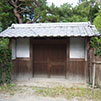Book Cover Causes Ire
In May, the social-activist website Debito.org reported that bloggers were outraged by the front cover of a UK textbook due to be published in August and entitled Japan’s International Relations: Politics, Economics and Security (3rd edition).
A Sapporo resident wrote: “This cartoon panders to the worst stereotyping of Japanese people and I feel this is a surprising choice for a respected British institution.”
Global School Behaviour Study
Japan came top and Britain 28th in a global study of classroom behaviour, reported the BBC on 24 May. Teenagers’ classroom behaviour is getting better rather than—as often perceived—worse, according to an OECD report that finds there were less class disruptions in 2009 than 2000. The UK scored above average, behind the US and Germany, but ahead of France and Italy.
Academic in “Black Women” Race Row
Students at the London School of Economics (LSE) are calling for the dismissal of social scientist Satoshi Kanazawa who claimed a study showed black women are less attractive than those of other races, the Guardian reported on 20 May.
Kanazawa had blogged: “Black women are … far less attractive than white, Asian, and Native American women”. The piece has since been removed from the site. A union that represents more than 120,000 students voted unanimously for Kanazawa to be sacked and his research condemned.
The LSE said: “We are conducting internal investigations into this matter”.
Envoys Dodge Car “Tax”
The Embassy of Japan is among missions that refuse to pay the £10-a-day charge for driving in central London by claiming they are exempt from local taxes, British tabloids reported on 28 May. The UK government insists the levy, introduced in February 2003, is not a tax but a charge for services. The total owed is £51m and here are the top non-payers and what they owe:
US—£5.29m, Russia—£4.41m, Japan—£3.65m, Germany—£3.49m, Nigeria—£2.70m, India—£1.88m, Sudan—1.60m, Ghana—£1.54m, Poland—£1.49m, and Spain—£1.25m.
Sainsbury Director Wins Award
The director of the Sainsbury Institute for the Study of Japanese Arts and Cultures won the 2010 Pola Cultural Memorial Award for outstanding research and promotion of Japanese culture, the Asahi Shimbun reported on 1 March. Nicole Coolidge Rousmaniere, from New York, plans exhibitions featuring Japanese art crafts in the US and Europe, and had studied Japanese ceramics, culture and contemporary crafts. From 2006 to 2009, she was a visiting professor in cultural resource studies at the University of Tokyo.
Miyagi Brit Helps Quake Victims
Professor Richard Halberstadt, 45, escaped injury when the earthquake struck North-Eastern Japan while he was working in a laboratory at the Ishinomaki Special Training University in Miyagi Prefecture, TV Tokyo reported on 19 May.
The British Embassy Tokyo drove him to safety, but he turned back in Sendai after seeing the horrors on a hotel TV.
On his return to the port city where he has lived for 18 years, a friend commented, “You idiot!” As he explained to the TV channel, “The charm of this city comes down to the people”.
The hotel is now a shelter where he helps survivors by cleaning and lifting heavy items.
Could Wind Replace Nuclear Power?
If Japan does abandon nuclear power, it has the ambitious goal of using renewables, reported the New Scientist on 18 May. That will most likely be wind, according to a report released in April by the Ministry of the Environment. “Wind-power generation has major potential”, it says, especially in the tsunami-hit north-east of the country.
“The potential is huge because of Japan’s long coastline and the subsequent large amount of power that could be generated offshore”, agrees Tetsunari Iida, founder of the Institute for Sustainable Energy Policies in Tokyo. He advocates a 100% switch to renewable energy by 2050.
“Concrete Tent” is Instant Home
A British firm is touting its new invention as a simple, semi-permanent housing solution that can go up in one day, Time reported in May. Concrete Canvas embeds flimsy fabric with concrete particles that, when doused with water, form a solid structure. Inside is an inflatable bubble for insulation and floor space of 25m2.
It can be set up by two people in about one hour. Once the panels are laid over the inside liner, spray with water and wait. Estimated price: £5,000.
Comic Denied Narita Entry
Controversial comedian and actor Russell Brand, 35, was refused entry to Japan, according to a 21 May tweet by his wife, Katy Perry. “So … my husband just got deported from Japan”, she said, as she arrived in the country to give concerts, adding that it “was for priors from over 10 years ago!” Brand has often admitted drug use and has been in trouble with the law.
Supermarket’s Strong Year
Japan remains a “difficult retail environment” for Tesco, although its global businesses have had a strong year overall, with improvements in sales, profits and returns, Talking Retail reported on 19 April. Most of its markets have seen “steady economic improvement” and, in some locations—particularly other Asian countries—a sharp improvement.
Research Deal Expanded
Eisai Co., Ltd. has entered a new phase in its 20-year partnership with University College London (UCL), the Asahi Shimbun reported on 25 May. The partners will engage in more joint research in neurodegenerative diseases and Eisai will integrate its UCL research functions into its European Knowledge Centre in Hertfordshire, to facilitate innovative knowledge creation.
University Inspires Study
An organisation that aims to learn more about mood disorders has been launched in Japan based on a model started at Cardiff University, according to a WalesOnline report in May.
Scientists from the Bipolar Disorder Research Network visited Tokyo and, as a result, an equivalent body has been launched in Japan. The Cardiff team claims research could support those with mood disorders following the trauma of the recent earthquake.





